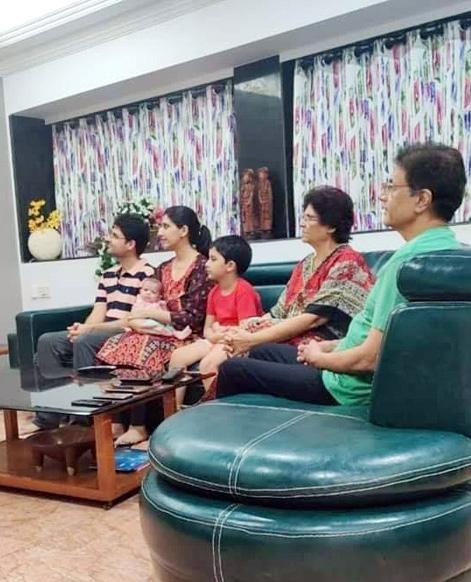
2 minute read
In a league of his own
from 2020-05 Melbourne
by Indian Link
How Irrfan

As a young man, Sahabzade Irrfan Ali Khan nurtured a serious desire to become a cricketer. In small town
India, where cricket and cinema are the twin intoxications that drive notions of heroism, the young son of a tyre seller in Jaipur couldn’t realise the dream, so he shifted focus to acting. It was his other passion – which he had been honing doing street theatre.
Irrfan faced the camera for the first time in Pravin Nischol’s Doordarshan TV series Shrikants tarring Farooq Shaikh and Sujata Mehta in the lead roles. The show ran between 1985 and 1986 and made very little impact.
His big screen break happened when Mira Nair came looking for fresh faces in National School of Drama (NSD), to cast in her 1988 film Salaam Bombay. She picked Irrfan, a student then, for a small role. The film went to the Oscars, and Irrfan was just about noticed.
What followed was years of struggle. For most of the nineties, he was stuck with forgettable roles in television. Irrfan, with his unconventional face and persona, was too ‘different’ to be the lead and too young to be the traditional bad man in commercial cinema.
A few interesting roles came up in the arthouse and crossover circuit: Basu Chatterjee’s Kamla Ki Maut (1989), Govind Nihalani’s Drishti (1990), Tapan Sinha’s Ek Doctor Ki Maut (1990), and Akashdeep’s Ghaath (2000). Despite good perfomrances, they didn’t give Irrfan the sort of traction he would hope for.
That happened with a ‘foreign film’ when British filmmaker Asif Kapadia was making his directorial debut with The Warrior (2002). He was looking for a new face – preferably Indian and unlike any – for the title role. Irrfan fit the bill perfectly. The film was an international success, and people who mattered in the industry noticed.
A year later, two films released would turn the tide for the actor. Irrfan’s goon-politician in Tigmanshu Dhulia’s Haasil and the brooding don in Vishal Bharadwaj’s Maqbool, a Bollywood revisit of Macbeth, gave screen menace two very different hues. It was the early 2000s, and Bollywood was welcoming new faces. Most importantly, the advent of multiplexes had thrown open the genre of realism in entertainment. Actors like Irrfan were suddenly in demand. Over the next years, roles in Life In A Metro, Sunday, Mumbai Meri Jaan and New York worked at propelling his popularity.
The big bang in Bollywood would come in 2012 with Paan Singh Tomar
Tigmanshu Dhulia’s remarkable reallife story of an athlete who became a dacoit needed an actor who could project a complex torrent of emotions with understated ease. Irrfan’s effort won him a National Award for Best Actor. It also underlined an important fact – the actor was a brand of his own, not a prop in big productions for major commercial stars.
What worked in setting up Irrfan’s film won critical acclaim and favour amongst a niche audience. It was Irrfan’s finest hour, making his demise an irreparable loss.
The 53-year-old actor is survived by his wife Sutapa and their sons, Babil and Ayan. He had been ailing ever since he was diagnosed with neuroendocrine tumour in 2018. For his fans, Irrfan will live on in the stories he
Last
What’s Arun Govil - aka Lord Ram - thinking as he watches a re-run of Ramayana with his family?

Congratulations Nikhil! You win a movie ticket.
For more caption entries, see YOUR SAY Page 07










